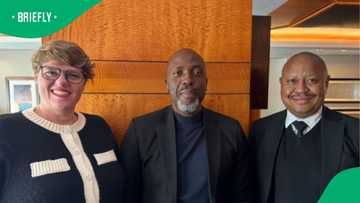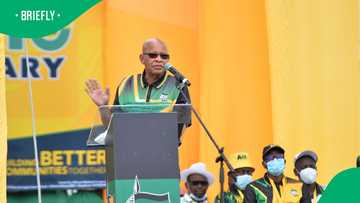Preparing for 2029: ANC Decline, GNU Politics, and the Future of South African Democracy
Nkululeko Somhlabathi has worked in military and financial services industry. His areas of interest include civic education and insurance, and he is currently pursuing an MBA.
PAY ATTENTION: You can now search for all your favourite news and topics on Briefly News.
The African National Congress (ANC) has been in power for more than two decades. However, the party faced a significant decline in support during the 2024 national elections, securing only 40.18% of the vote. This represents a stark drop from 62.14% in 2014 and 57.50% in 2019.
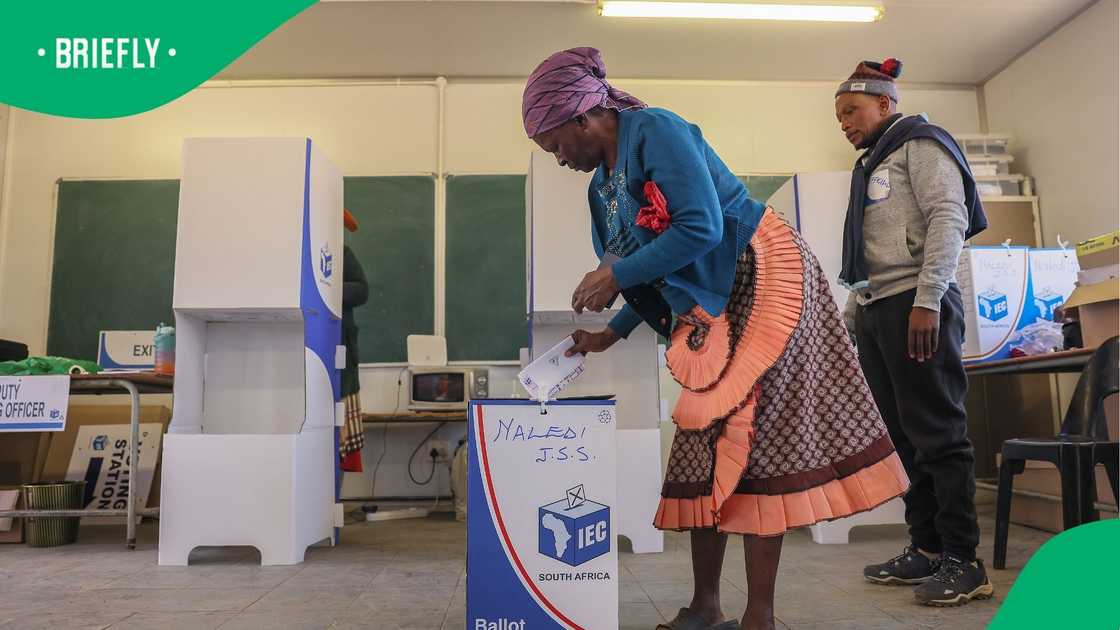
Source: Getty Images
Relied on its past achievements
Currently, the ANC appears to be the only party that portrays itself as representing all citizens of South Africa. This positioning is rooted in the party's historical alliances and its role in the liberation struggle, which contributed to the establishment of a constitutional democracy in the country. However, the ANC has sometimes relied on its past achievements as a form of political capital. The 2024 elections served as a harsh reminder of its diminishing currency. Additionally, the party's ongoing involvement in corruption scandals among its members has further harmed its reputation and support.

Read also
Cyril Ramaphosa backs establishment of anti-corruption body, South Africans suggest: "Start With Phala Phala"
Other political parties appear to have niche supporters, and this niche support base seems to be expanding. Factionalism and the demand for racial, tribal, and religious representation are the primary factors defining these niches.
2024 Election results
The results of the 2024 elections marked a period of ambiguity in South Africa's constitutional democracy. The spoiled votes and non-voters contribute to the ambiguity. However, the entrance of the MK Party in Parliament disrupted the traditional seating order.
The results of the 2024 elections cannot be reversed, at least for the next five years. The nation accepted them, but did the political parties that were contesting the elections actually accept them? The citizens need to examine the formation of the Government of National Unity (GNU), especially the political parties that accepted the ANC’s invitation.
This marks the second GNU in South Africa's constitutional democracy. The first GNU was established in May 1994, in the infancy of Dr. Nelson Mandela’s presidency. At that time, it served as a power-sharing and unification mechanism, reflecting the circumstances of that period, and was mandated by the Interim Constitution. The first GNU had clear and mutually agreeable objectives.
The ANC established the second GNU in response to the ambiguity of the election results. In its statement of intent, the ANC describes the GNU as a voluntary arrangement, which is its first distinguishing feature from the GNU formed in 1994. When the elections were contested, the existence of the GNU seemed inconceivable. It is unclear whether the citizens would have supported a GNU.
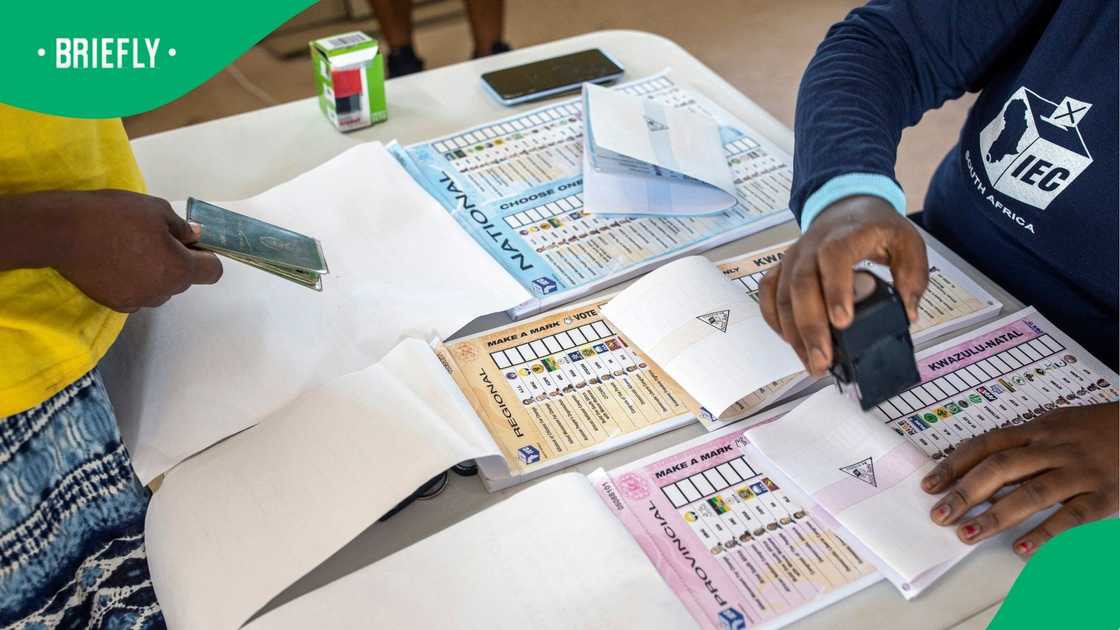
Source: Getty Images
Relationship between the ANC and DA
Although the statement of intent does not mention the MK Party, public comments from some GNU members indicate that one of its objectives was to manage the MK Party's disruptive entry into Parliament. The nature of the relationship between the ANC and the Democratic Alliance (DA) reinforces this idea, as they differ in many respects. They hold unreconcilable views on transformation and foreign policy. They have allowed their disagreements over foreign policy to be displayed on the international stage. As a result, it is unlikely they would enter into the GNU without a shared objective.
The establishment of the GNU can also be seen as a strategic move by the ANC, as it has also personified the opposition. A notable moment occurred when John Steenhuisen from the DA reportedly admitted that governing is significantly more challenging in practice than it seemed from the opposition benches—exactly the sentiment the ANC aimed to convey. Historically, the ANC has never secured 350 or 400 seats in Parliament on its own. The South African government has traditionally operated as a multi-party system.
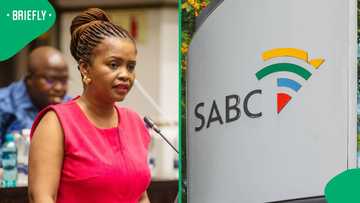
Read also
Khusela Sangoni-Diko warns that SABC is on the brink of collapse, South Africans are not surprised
Despite multi-party representation in Parliament, the ANC has often faced criticism for various government issues, sometimes justifiably. This is a trend that persisted even as the ANC was losing seats in Parliament. With the introduction of the GNU, the responsibility for government failures would be shared, and the GNU would help to reduce the disruptions caused by the MK Party.
2029 Elections
Additionally, the ANC appears to be acknowledging that it is losing its hold on power. Given the results of the previous elections, it would be preferable for the ANC if there were no clear frontrunners in the period leading up to the 2029 elections. Hence, the personification of the opposition must be seen as a masterstroke. On the other hand, participation in the GNU presents an opportunity for opposition parties to demonstrate their capabilities to the citizens, while also allowing the citizens to evaluate their contributions.
Given the above, the citizens' next vote needs to be decisive. The next vote must not be based solely on loyalty, and citizens must not wait until the last minute to be swayed by free parcels and empty promises. The vote needs to be intentional and based on merit. Citizens should, therefore, consider including collective issues in their voting metric.
Police General’s explosive Press Conference
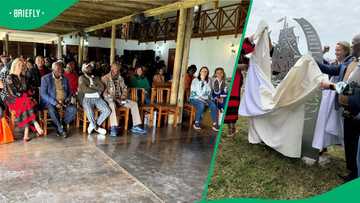
Read also
“South Africa and Ukraine share a history”: Luxe Eastern Cape hotel honours connection with new sign
The actions taken by the General to bypass established procedures within the SAPS or the police ministry are a clear sign of the depth of corruption. Furthermore, these actions should be viewed as a means to compel the Cabinet to take action.
As is often the case, the President has established a Commission to investigate the matter; however, its findings may take a significant amount of time, potentially rendering the outcome less relevant while diverting attention to other issues. This is one matter that must never escape the citizens’ attention.
Citizens must closely monitor the role of each political party in holding accountable those implicated in corruption. The General demonstrated that there is a lack of political will to eradicate corruption by risking his life, career, and freedom.
Many scandals are expected to be uncovered, and numerous individuals will likely be implicated. If citizens wish to eliminate corruption, they need leaders who are willing to take decisive action. Since the President has the sole authority to appoint the Cabinet, citizens should be clear about their expectations. It will be for the next President to meet those expectations.
Two-pot system
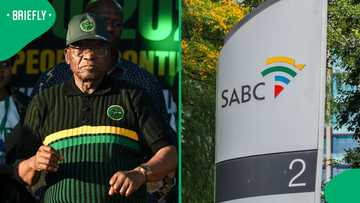
Read also
SCA grants Jacob Zuma and MK Party leave to appeal case against SABC over use of GNU term, SA amused
If you borrow money or make an early withdrawal from your savings, you are eating from your future. It is alarming that such behaviour is being supported by the government.
The middle class often uses financial services, buys goods, and seeks credit and, as such, plays an essential role in the economy. The transformation agenda has resulted in a larger and expanding middle class, which is one of the gains of democracy. However, this class is presently burdened by debt and finds it challenging to afford basic necessities.
Furthermore, the middle-class citizens often have to rely on the private sector for essential services due to the inadequacies of public services. These factors erode their income and lead to a decrease in consumer spending and, consequently, reduced consumption of goods and services.
Instead of working to improve the economy and alleviate the tax burden, the government is encouraging citizens to "eat from their future." The two-pot system exemplifies the dire state of South Africa’s economy; it is merely a scheme designed to boost spending and generate superficial economic activity.
Reversing the two-pot system is essential to ensuring the financial future of both the country and its citizens. Therefore, citizens must vote for political parties that offer sustainable solutions to promote economic growth and secure their financial future.
Public transport sector
The taxi industry is one of the few sectors still controlled mainly by previously disadvantaged individuals, operating with minimal regulation. New entrants face violent and unreasonable resistance. For instance, the government has failed to fully implement Rea-Vaya in Johannesburg due to resistance by the taxi industry.
The lack of government action, combined with the authority imposed by taxi associations and operators, creates significant barriers and criminality in the public transport sector. These issues impact all citizens, including law enforcement, motorists, businesses and commuters.
Taxi associations dominate the public transport landscape and are often known for treating commuters in an abusive and disrespectful manner, overlooking the significance of the commuters to their business. This may be due to their belief that they are the ultimate option for commuters, considering their monopoly and the illegal elimination of competition.
Commuters are, in essence, consumers and should receive the same protections afforded to consumers in other sectors. For example, every sector, including public health, has an Ombud Scheme in place, yet it is unclear why the public transport sector has been exempted from such oversight.

Read also
"Paradise does not exist": Best-ranked country to move to for work-life balance, SA debates
The arrogance displayed by taxi associations and operators may stem from their belief that the government fears them, or it could simply reflect a diminished sense of accountability. The issues within the taxi industry and public transport sector in general pose a significant threat to both national security and the economy.
The influx of foreign nationals
Illegal immigrants place considerable strain on public infrastructure. Additionally, they are unable to participate in the formal sector, which forces many to rely on informal, criminal, and illicit economic activities, such as operating spaza shops, providing cheap labour, and involvement in the drug trade. It is particularly concerning how the spaza shop business appears to have been monopolised by a specific group of foreign nationals who seem to function as an organised enterprise. This situation threatens South Africa’s national security and hinders economic growth.
The government's inability to take decisive action on illegal immigration has led to the emergence of extortionist gangs and movements like Operation Dudula. Addressing this challenge requires political will, yet there seems to be a notable lack of it from those in power.
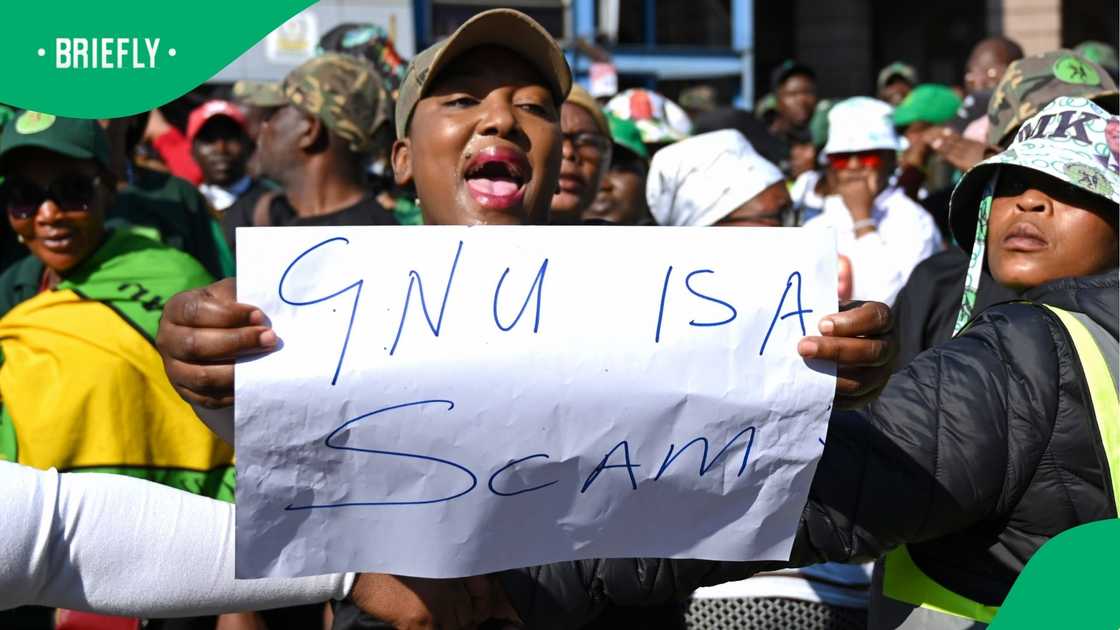
Source: Getty Images
The GNU
There is significant discord within the GNU, particularly between the DA and the ANC, which are its two primary role players. The racial tension and disagreement on fundamental policies—especially regarding foreign policy and transformation—create considerable challenges. While differences on domestic issues can be manageable, conflicting views on foreign policy can create incoherence and lead to sabotage.
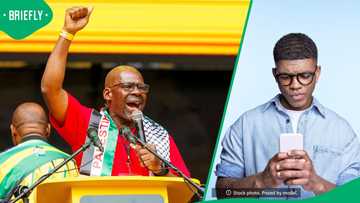
Read also
SACP to contest 2026 elections, even if expelled from tripartite alliance, SA split by the decision
The DA generally aligns more with the West, while the ANC tends to favour connections with non-Western blocs such as BRICS – sometimes called the “Global South.” However, neither party has clearly articulated how their positions address the current needs of the nation
Aligning with either the West or the “Global South” does not necessarily mean completely rejecting the other, but allegiance needs to be clarified. South Africa can no longer afford to be vague in its approach. In the realm of foreign policy, discussions are dominated by Western and “Global South” perspectives, with few alternative viewpoints explored or presented. As a result, even other political parties may find themselves compelled to choose between these two options.
The government's failure to meet Donald Trump's deadline was not just a coincidence; it signalled that South Africa's priorities are focused elsewhere. This situation is not simply about choosing between the West and the “Global South,” as either has advantages and disadvantages. Instead, the key issue lies in how the government responds to the consequences of its decisions and how it supports those who are affected by them.
Navigate the future
South Africans should use their history as a tool to navigate the future. How both citizens and politicians utilise the country’s history will determine whether it serves as a harmful or beneficial tool. The past should remind South Africans of the future they envision.
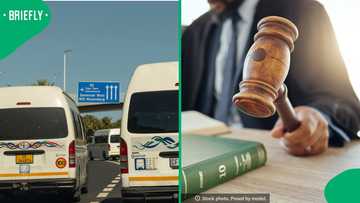
Read also
Western Cape government secures court interdict to end taxi violence, SA shares mixed reactions
Manifestos should become a thing of the past. Political parties must not have the power to dictate the national agenda; instead, they should present plans that align with the requirements of the citizens.
This approach ensures that citizens and political parties understand the necessary steps to advance the nation and its priorities. The citizens must be willing to make necessary sacrifices, just as the Singaporeans did for their country. The progress made since 1994 demonstrates that doing a tiny bit everywhere to please everyone has yielded little benefit for the nation.
Citizens should take the time between now and the 2029 elections to assess political parties based on their contributions and political will to address pressing issues and set the nation's priorities.
3 More stories about the elections
- Briefly News also reported that the Independent Electoral Commission (IEC) appeared before Parliament to discuss the challenges it faced during the recent general elections.
- The uMkhonto weSizwe Party (MKP) is challenging the result of the 2024 National Elections once more.
- The African National Congress lost its majority for the first time in 30 years and was forced to form a Government of National Unity.

Read also
Leon Schreiber confirms 51,000 illegal immigrants deported since GNU, SA questions how many returned
Disclaimer: The views and opinions expressed here are those of the author and do not necessarily reflect the official policy or position of Briefly News.
PAY ATTENTION: Follow Briefly News on Twitter and never miss the hottest topics! Find us at @brieflyza!
Source: Briefly News

